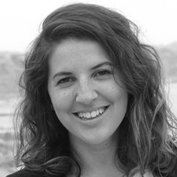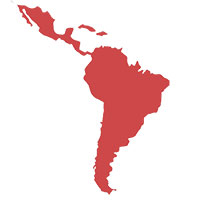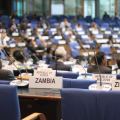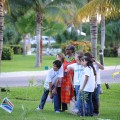Doing it for the Kids: Intergenerational Equity
Sydney Pead | December 8, 2014.
Young people have united at the UN climate change negotiations in Lima to demand that there is a greater emphasis on future generations within the process.
Intergenerational equity deals with the quality and diversity of the Earth’s environment as assets belonging to past, present and future generations. It recognises the need to give equal weighting to all regardless of age, so that the interests of the future are represented and not undervalued in climate negotiations of the day.
As part of the Youth and Future Generation Day (YoFuGe Day) last week, a number of young people turned their attention inward to contemplate their current and ongoing role within the negotiations process.
The international youth climate movement, with all of its diversity, may not agree on everything, but on intergenerational equity, they do: it needs to be a driving motivator for international talks. Ayesha Constable, a representative from Commonwealth Youth Climate Change Network, said youth need to be considered in the decision making process because they are the ones who must live with the consequences.
“It’s about fairness and justice, in this case climate justice. Young people are going to bare the brunt of climate change impacts that were left to them by older generations. It’s important that they have a chance to meaningfully contribute to making decisions that will directly impact them in the future,” she said.
Ms Constable said the aim is to compel governments to set ambitious emission reduction targets.
“We want to create a space for voices to be heard. We want to be taken seriously and contribute to the final outcomes because at the end of the day we’ll have to deal with the consequences.”
Discussions were also had about what role the UNFCCC should play in supporting and facilitating youth participation in negotiations. Executive Secretary Christiana Figueres called on youth in to utilise the avenues that are currently in place to formally submit suggestions and proposals.
Figueres implored youth delegates to campaign to their governments to help fund youth participation and the UNFCCC. “Remind them of the wisdom of youth,” she said.
Even without the help of government bodies, youth are independently leading the way. The range of activities that young people are engaged in at COP20—from lobbying to research, or coordinating grassroots campaigning to entrepreneurial pursuits—is testament to the diversity of the youth environmental movement.
With enough campaigning, young people hope to bring intergenerational equity to the forefront of negotiation topics and begin to transition into a liveable future.













comment